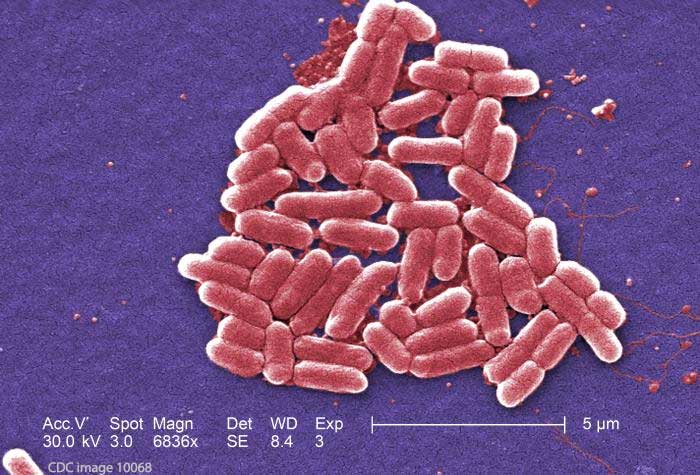Yes, you can sue Applebee’s for E. coli food poisoning if you ate food at one of the company’s restaurants, you were diagnosed with an E. coli infection within 10 days after eating there, and evidence connects your illness to the restaurant. For example, if you and several other people all got sick after eating at the same Applebee’s location within a few days of each other, that is epidemiological evidence that can be used in a lawsuit against Applebee’s.
Our E. coli lawyers are investigating an ongoing E. coli outbreak associated with an Applebee’s restaurant in St. Paul. We have obtained compensation and justice for people sickened in every major U.S. E. coli outbreak. If you believe you or a family member has been diagnosed with E. coli food poisoning, contact our law firm to find out if you can sue for compensation using the form below.
 13
13
E. coli Outbreaks Associated with Some Applebee’s Restaurants
Minnesota health officials are currently investigating an E. coli outbreak at a St. Paul, MN Applebee’s restaurant. A food source has not yet been identified, but some of the people reported eating a chicken Caesar salad before developing symptoms of an E. coli infection.
Our lawyers filed the first lawsuit against Applebee’s in Minnesota on behalf of a man who contracted an E. coli O111 infection after eating an Oriental Chicken Salad at the Woodbury, MN restaurant in 2014.
At least 13 people who reported eating at certain Applebee’s restaurants in Minnesota have been diagnosed with E. coli O111, a rare form of the bacteria that causes severe abdominal pain and bloody diarrhea. In some cases, the infection can cause severe colitis, pancreatitis, hemolytic uremic syndrome (kidney failure), and other serious health problems.
The Minnesota Department of Health (MDH) has pinpointed Oriental Chicken Salad served at some of the Minnesota restaurants as a possible menu item associated with the seven illnesses. There are 6 other people in MN who contracted these infections not associated with Applebee’s. This means the contamination of the food that caused the illnesses probably happened before it got to the restaurants.
“Having represented people sickened with E. coli during the outbreak linked to steaks sold at Applebee’s in 2009, we can say that it is crucially important that the restaurant fully cooperate and immediately respond to additional information as it becomes available,” said Fred Pritzker, our lead lawyer for these cases.

Restaurant Liability
Under federal law, non-intact steak injected with brine is considered adulterated if it is contaminated with certain strains of E. coli. This means that a strict liability claim is possible. With strict liability, the victim does not need to prove negligence on the part of the restaurant or processor.
We have successfully represented numerous victims of food poisoning outbreaks linked to lettuce, beef, and other food served at restaurants.
E. coli Outbreak Linked to Steak Served at Applebee’s
A December 2009 steak recall was prompted by an E. coli O157:H7 outbreak linked to steak that sickened at least 21 people in California, Colorado, Florida, Hawaii, Iowa, Indiana, Kansas, Michigan, Minnesota, Nevada, Ohio, Oklahoma, South Dakota, Tennessee, Utah, and Washington.
Under federal law, non-intact steak injected with brine is considered adulterated if it is contaminated with this pathogenic bacteria. This means that a strict liability claim is possible. With strict liability, the victim does not need to prove negligence on the part of the restaurant or processor.
Applebee’s has had problems with E. coli-contaminated steak in the past. In the summer of 2004, an E. coli O157:H7 outbreak was associated with tri-tip steak served at an Applebee’s in Colorado. At least four people contracted Shiga toxin-producing E. coli (STEC) infections. The contaminated steak was part of a recall of over 400,000 pounds of hamburger patties and steak processed by Quantum Foods of Bolingbrook, Illinois.
Free Consultation
You can call 612-338-0202 to contact our lawyers for a free consultation about an Applebee’s lawsuit. We generally do not file a class action lawsuit because our experience is that our clients get more money if we file individual E. coli lawsuits.